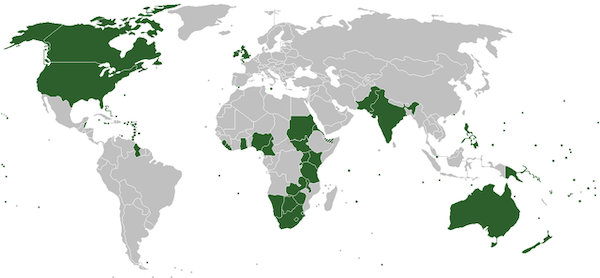
Let’s begin by taking some virtual tours of key English-speaking countries.
- Discover the beauty of the United States
- Visit the USA
- Discover the beauty of Canada
- Destination Canada
- Discover the beauty of the United Kingdom
- Visit Europe. Discover the United Kingdom
- Visit Britain
- Discover the beauty of Ireland
- Visit Europe. Discover Ireland
- Ireland destinations and things to do
- Discover the beauty of Australia
- Dreaming of Australia
- Discover the beauty of New Zealand
- Your New Zealand journey
OUR BASIC ENGLISH LESSONS

Are you planning to visit New York City, affectionately known as the ‘Big Apple’? Here, you will find the world within a city.
With our complementary English course, you will learn the basics to communicate effectively in a wide variety of common situations. Try our 40 free online lessons.
Talking about yourself, family and friends
E1: Introduction to the English language
(alphabet; parts of speech)
E2: Meeting new people: greetings, introductions, farewells. Titles
(simple present tense of the irregular verb ‘to be’; subjects and verbs; word groups (phrases, clauses, sentences)
E3: Talking about your family, relatives, friends and pets
(personal pronouns; simple present tense of the irregular verb ‘to have’)
E4: Talking about countries, nationalities and languages
(simple present tense of regular verbs; prepositions ‘from’ and ‘in’; interrogative words)
E5: Talking about the weather, seasons and climate change
(the definite articles; omission of definite articles; formation of nouns and adjectives)
E6: Talking about clothing, accessories, fashion and appearances
(colors; qualifying adjectives; the possessive adjectives; the gender of nouns and adjectives)
E7: Talking about your home. Rooms, furniture, appliances. Size, shapes, colors
(indefinite articles; the active mood of the verb)
E8: Stating your age, address and phone number. Telling time
(cardinal numbers; prepositions of direction; prepositions of location and direction; time prepositions; imperative; giving directions; syntax of simple sentences; time adverbs/ now, before, always)
E9: Talking about the days of the week and the months of the year. Appointments
(ordinal numbers; time expressions; direct and indirect objects; transitive and intransitive verbs)
E10: Talking about your leisure time and hobbies. Routines. Camping
(adverbs; frequency adverbs; reflexive verbs)
E11: Talking about key life events. Births, engagements, weddings, anniversaries, deaths. Feelings and emotions.
(the simple past tense)
Talking about your community
E12: Talking about the education system. Levels, schools, classrooms and subjects.
(imperfect tense; comparative and superlative adjectives)
E13: Talking about work. Occupations. The office environment
(future plans; subject pronouns)
E14: Talking about religion. Places of worship
(types of nouns; relative pronouns)
E15: At the bank. Foreign exchange. Types of accounts. Credit and debit cards
(adverbial pronouns)
E16: At the post office
(adverbial pronouns)
E17: At the library. At the bookstore. Talking about literature
(I like)
E18: At the restaurant. At the cafe. Different types of cuisine
(nouns of quantity; I wish; common expressions with the verb ‘have’)
E19: At the supermarket. Farmers’ markets. Flea markets
(expressions with the verb ‘..’; nouns of numbers/a dozen of; fractions; multiple numbers/ twice a day, half a loaf)
E20: At the doctor, dentist and pharmacy. Parts of the body. Talking about your health.
(irregular past participles; agreement of past participles of verbs conjugated with ‘to have’; negative forms; common expressions with the verb ‘…’)
Introduction to New York City
E21: At the airport. Check-in and departures; on the plane; arrivals
(present continuous tense; common expressions with the verb ‘…’; past participles of verbs)
E22: At the hotel
(polite requests with the conditional)
E23: Talking about types of tourism. Sight-seeing tours. River cruises. Heritage sites
( conjunctions; the partitive article)
E 24: Coney Island. Amusement and theme parks. Aquariums
(progressive tense; Forms of the present gerund; use of the gerund )
E25: Talking about the architecture of New York City. Buildings and bridges
(common expressions with the verb ‘…’)
E26: Talking about art. Museums, monuments and statues in New York City
(capitalization and small letters; exclamations; demonstrative adjectives)
E27: Attending a Broadway show. Going to the cinema/movies
(object pronouns)
E28: Talking about emergencies in New York City. Police. fire, ambulance services
(types of emergencies/ fire, ambulances, natural disasters)
E29: Talking about festivals and celebrations in New York City. Christmas, New Year’s, Easter, Halloween, Thanksgiving
(impersonal pronouns)
E30: Talking about the geography, neighborhoods, beaches and favorite landscapes in New York and the United States
(subjunctive)
E31: Talking about the government of New York City and the United States
(abbreviations and acronyms)
E32: Talking about the history of New York City and the United States
(narration of events in the past)
E33: Talking about the media in New York City
(punctuation)
E 34: Talking about music and the performing arts in New York City
(comparison of inequality and equality; absolute superlative; prepositional modifiers)
E35: Talking about parks and gardens in New York City
(the passive mood of the verb)
E36: Talking about the planetarium of New York City
(adjectives followed by prepositions; They are not used to walking)
E37: Talking about shopping in New York City. Department and specialty stores. Local neighborhood shops and services
(construction of reflexive verbs in compound tenses)
E38: Talking about sports in New York City
(compound nouns/ sky diving)
E39: Talking about transportation in New York City
(subjunctive after impersonal expressions/ It’s necessary that you arrive early.)
E40: At the zoos in Central Park and the Bronx
(syntax of complex sentences; coordinating conjunctions)

